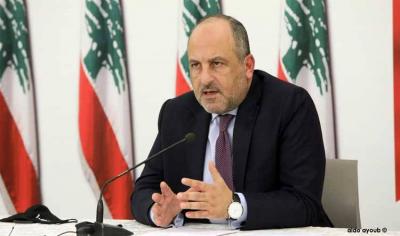Member of the "Strong Republic" bloc, MP Pierre Boo Aasi, confirmed that the "Lebanese Forces" have "left the option for their supporters to go to Bkerke on Saturday because they do not want to politicize the proposal of Patriarch Mar Bechara Boutros al-Rahi regarding Lebanon's neutrality and holding an international supportive conference for it, nor do they want to 'partisanize' it so that Bkerke remains the referential point for the proposed approach." He considered that "the forces' presence in Bkerke and their support for the positions of Patriarch al-Rahi does not have a sectarian aspect but rather a national dimension due to what this edifice represents as a national reference."
Boo Aasi said in an interview with "Radio of the East": "When the people adopt the proposal, it receives the necessary impetus to be realized. This is what we hope for from people's attendance at Bkerke and beyond it. There should be a convergence between the people and the officials or references, as it leads to a comprehensive dynamism that drives social changes." He believed that "Lebanon is in a catastrophic state on the political level, while the antagonisms continue without considering the citizens' situation, and the same goes for the economic and social levels, and unfortunately, there is no horizon today." He added: "The worst that can happen to a society in crisis is not seeing any horizon for a solution. The people see in Bkerke's proposals a hope for possibility and an opportunity not to succumb to the status quo. Hence, I believe they will respond to the call and head to Bkerke on Saturday to assert that Lebanon is our country and we will not allow anyone to suffocate us economically, socially, and politically, nor will we die in silence. This step comes in preparation for a solution's horizon, namely neutrality and Lebanon's openness to the international community."
He emphasized "Bkerke's historical role and the principles it upholds, which are sovereignty, pluralism, and the spirit of democracy," considering that "these three points are at the core of Lebanon's existence, and Bkerke is historically responsible for them and always stands against any infringement upon them; it is the guardian of the structure and has not entered and will not enter into the alleys of politics," asserting that the "forces" "always work to defend them."
Boo Aasi saw "that the essence of the Lebanese problem is sovereign-political, and its solution can only be political-sovereign; bending the corners will not work." He stated: "There is no freedom without independence, and there is no bread without freedom. Those who cling to their freedom will be pursued by bread, and those who give it up will lose bread and become humiliated. We have experienced in this country the notion of adhering to stability at the expense of sovereignty, and the result was that we lost stability and sovereignty. Today, we either all 'float' in this country, or unfortunately, what is proposed is to descend into hell, and we will not descend. Today, the battle is existential to affirm Lebanon's identity."
In response to a question, he answered: "Based on what has been presented, the 'Lebanese Forces' still maintain their position on not participating in the government and calling for a government of independent specialists. The natural position of any party in the world is within the authority to implement its proposals, similar to our participation in the parliament, but until now, we do not see that the circumstances are conducive to returning to the executive authority; however, tomorrow, every incident has its own discussion. We have fulfilled our duty towards the people in our government work, and I wish we could serve them more."
Boo Aasi concluded: "The presidency is not strong because there is a criterion for strength, which is the economic, living, and cultural situation; if this is considered strong, then how would it be weak?"




